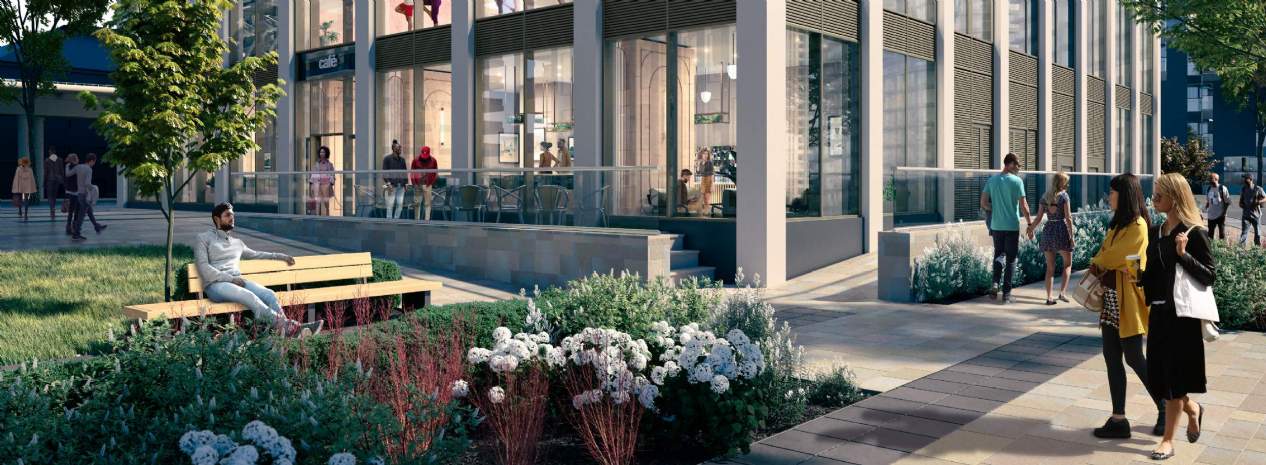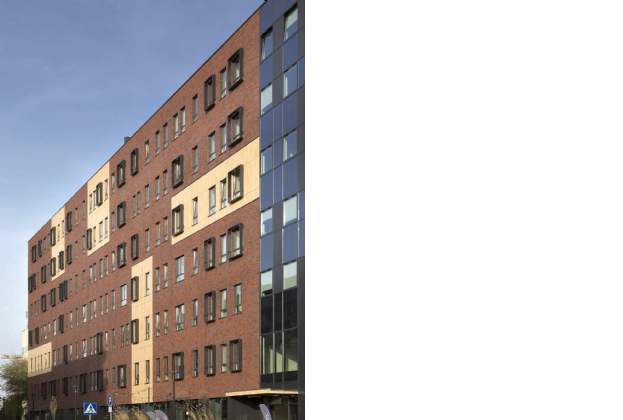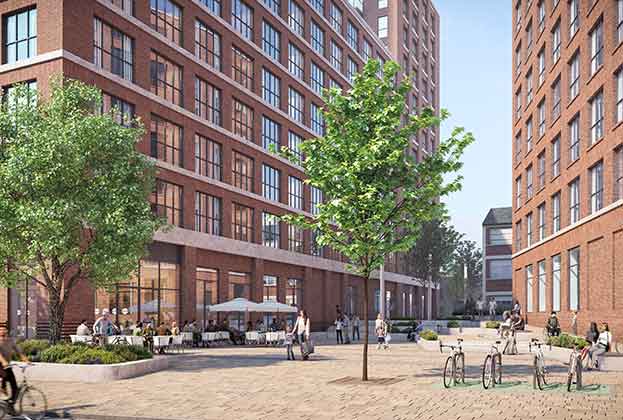The UK housing market is challenged with a lack of homes for the growing population, with the public and private sector looking for ways to ease the supply vs demand pressure. Co-living schemes are something that we’ve seen coming through as a way to tackle the housing crisis. They offer shared affordable, high quality accommodation, predominantly for 18–40-year-olds, with fully furnished private living units, communal areas and often flexible working space.
Co-living schemes are now becoming established in London, through developments such as The Collective in Canary Wharf, Folk in Battersea and Enclavein Croydon. It’s also beginning to find its feet in other cities. There are 2,500 beds soon to complete in Manchester, Watkin Jones & Moda are preparing schemes in Leeds with Birmingham, Edinburgh, Glasgow, Sheffield, Newcastle, Cardiff, Nottingham and Bristol all having a growing pipeline of projects coming through, which is encouraging to see.
The Benefits
Living alone can be isolating. Co-living spaces offer community, often holding social events, having excellent communal spaces and many also include co-working spaces, which can ease the post-pandemic transition to more hybrid working patterns. It’s also attractive to renters as there are short-term leases available, with utility bills included and often pet-friendly policies.
Affordability is a big issue in the housing market. Co-living spaces are purpose-built properties, providing affordable, spaces, inclusive of utilities, with high quality building amenities like concierge services, gyms, and cinemas. The graduate talent pool in every city is full of potential: many students remain in their university towns for employment; as co-living spaces are located in city centre locations and transport hubs, they act as a magnet for recent graduates, young professionals and key workers looking to work in the city at a cost-effective rate.
The Challenges
While there are circa 4,000 operational co-living units, we believe there’s potential demand from 1,900,00 tenants (600,000 in London alone). There’s a few factors slowing supply: the market is still very much nascent, and has a smaller footprint relative to sectors like hotels, PBSA and Build to Rent, which are also competing for land. Planning permissions can be hard to secure which also delays development. There are currently 7,300 beds at the planning application stage and another 9,700 with planning consent, demonstrating more development is coming, but maybe not quick enough. Use class is also a debate, testing viability for purpose built shared living as C1 or Sui Generis use.
The Investment Opportunities
There’s definitely momentum behind the sector with £2.25 billion of investment to be deployed over the coming years. The demand for rental properties, especially in major cities, remains at an all-time high. This is supported by growing student numbers, with investor interest in PBSA rising by 32 per cent in two years, according to the latest stats from Investec.
Co-living spaces is essentially the next best thing for graduates following PBSA. As the co-living space picks up across the UK and appeals to tenants, it should also be on the radar of investors. APG, British Airways, BP Pension Fund, Co-Liv Fund (DTZIM), VITA, Blackrock and Oaktree are some of the key operators behind co-living units at Living Scape, Dandi, Folk, Ark, The Collective, Union and Outpost.
The Pipeline
There are currently around 6,500 co-living units under construction, including The Gorge in Exeter (following its completion this September, its 133 studio homes are already letting well); Downing’s £227 million 2,200 unit co-living scheme in Manchester should completing its first phase of construction in August 2024; and, following its success in delivering affordable housing units through student accommodation and BtR models and completing a £191 million funding deal for Union, Vita will deliver a two-tower co-living scheme in Manchester across 2024 and 2025.
Co-living space is becoming more established across the UK due to the value it offers to investors and tenants alike, and we see momentum picking up even faster.
Further information
Contact Lizzie Beagley
Spotlight: UK Co-living - 2023


.jpg)


.jpg)

.jpg)
.jpg)

.jpg)